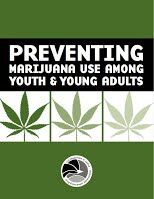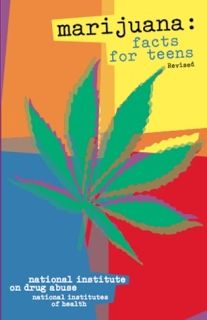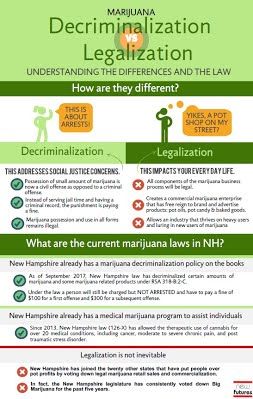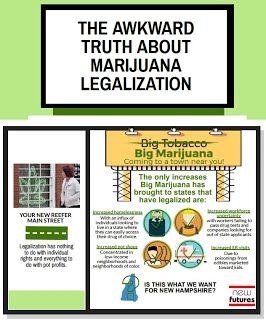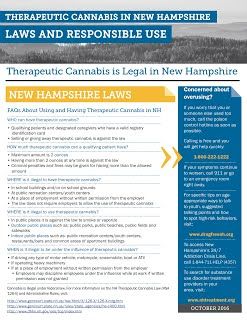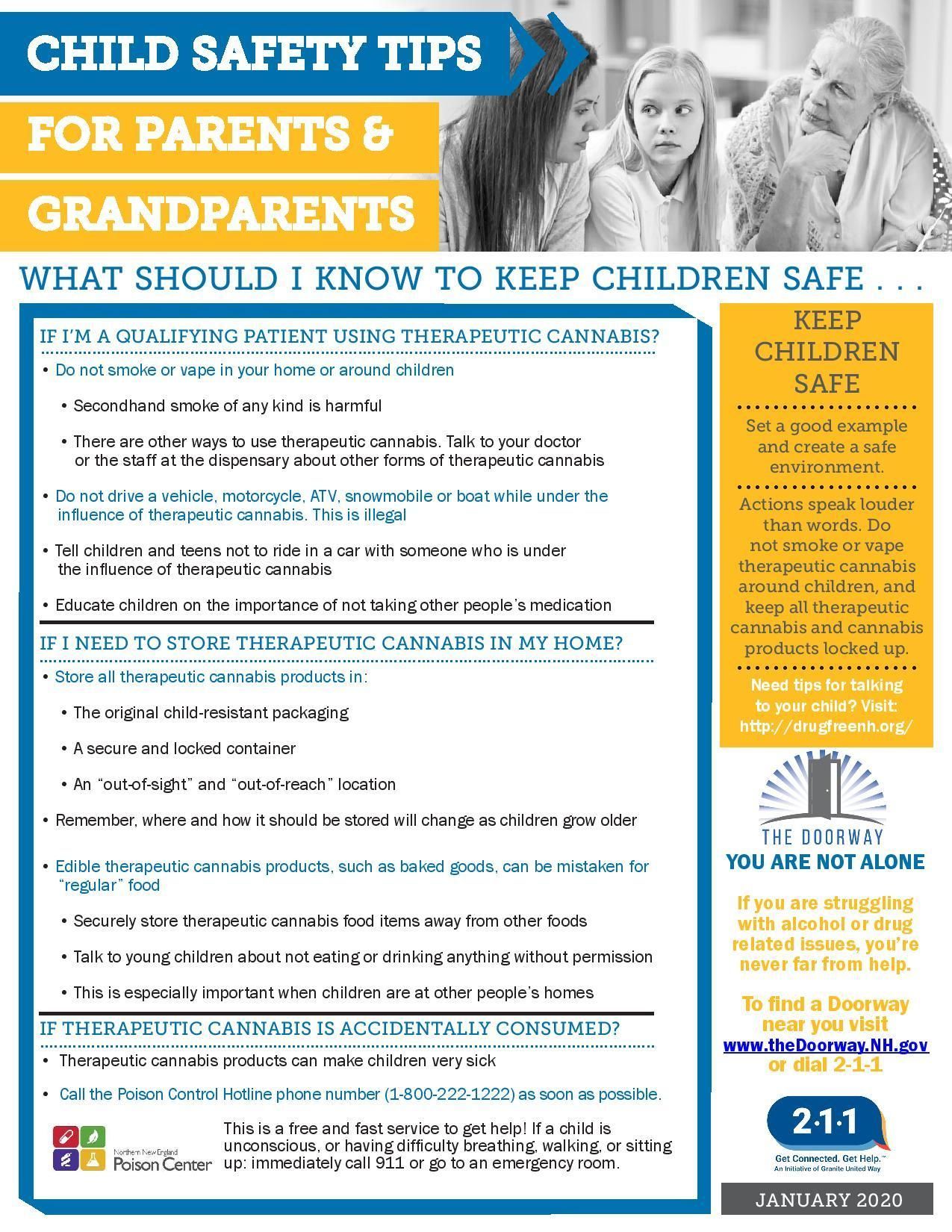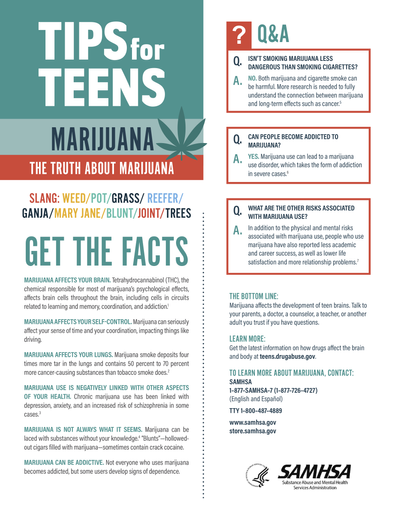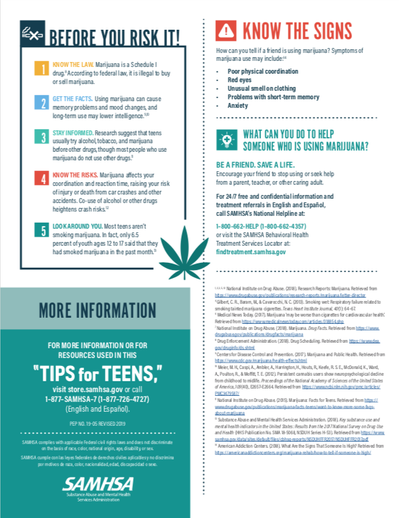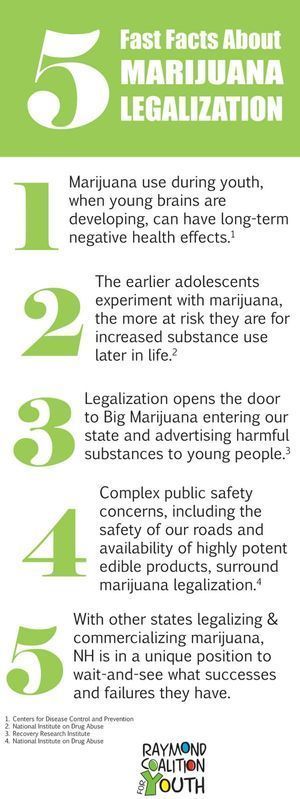Marijuana continues to be in the news, all over the internet, and in many conversations out and about in our communities.
Many adults are confused about it and even more kids are confused about it. The bottom line is marijuana is not a safe drug and has many concerning issues. Our goal is to provide factual and updated information on this drug.
This page is full of resources to provide you with opportunities to learn more, and start a conversation, about the dangers and risks of marijuana use.
Marijuana is illegal in NH - meaning you can not openly buy it in a store, it is not regulated for safety.
Marijuana is decriminalized in NH - meaning no one is going to jail just for a small, personal amount (3/4 ounce) of marijuana. A person over the age of 18 if caught with marijuana would get a citation, very much like a speeding tickets, they would mail it in with a fine.
NH does have medical marijuana (Therapeutic Cannabis) for qualifying patients, who have a qualified condition and obtain a medical card to allow them to purchase product at a therapeutic cannabis shop located throughout NH.
Think you know marijuana? All of the images below represent current day marijuana products.

In the News, some recent updates about the harms and dangers of marijuana
As legal pot grows, more kids sickened by edibles at home
The number of young kids, especially toddlers, who accidentally ate marijuana-laced treats rose sharply over five years as pot became legal in more places in the U.S., according to a study published Tuesday.
More than 7,000 confirmed cases of kids younger than 6 eating marijuana edibles were reported to the nation’s poison control centers between 2017 and 2021, climbing from about 200 to more than 3,000 per year.
Nearly a quarter of the children wound up hospitalized, some seriously ill, according to a new analysis in the journal Pediatrics. Read More Here
New Rochelle High School in New York “needed to be revived with Narcan after the teen used a vape possibly laced with deadly fentanyl.” According to officials, the student “was smoking a vape believed to be marijuana and went unconscious on Monday. Nurses rushed into action to administer Narcan – a treatment that can reverse the effects of a known or suspected overdose.” Superintendent Jonathan Raymond “called the incident an ‘ominous milestone’ for the district.” He wrote, “The vape almost cost that student their life. I implore you to speak with your children immediately about the dangers of vaping. It is urgent.
Marijuana Facts for Teens:
Quick Facts–
- Most teenagers do not use Marijuana
- Marijuana is addictive. About 1 in 6 people who start using as a teen, and 25–50 percent of those who use it every day, become addicted to marijuana.
- Marijuana and driving do not mix. It is the most common illegal drug found in drivers who die in accidents (around 14 percent of drivers), sometimes in combination with alcohol or other drugs.
- Marijuana affects the brain—altering memory, judgment, and motor skills.
- Among youth receiving substance abuse treatment, marijuana accounts for the largest percentage of admissions: 61 percent of those under 15, and 56 percent of those 15–19.
Information–
What is marijuana? Are there different kinds?
Marijuana is a green, brown, or gray mixture of dried, shredded leaves, stems, seeds, and flowers of the hemp, or cannabis, plant. It goes by many different names—pot, herb, weed, grass—and stronger forms include sinsemilla (sin-seh-ME-yah), hashish (“hash” for short), and hash oil.
How does marijuana exert its effects?
All forms of marijuana are mind-altering (psychoactive). In other words, they change how the brain works. Marijuana contains more than 400 chemicals, including THC (delta-9- tetrahydrocannabinol). Since THC is the main active chemical in marijuana, the amount of THC in marijuana determines its strength or potency and therefore its effects. The THC content of marijuana has been increasing since the 1980s.
What happens if you smoke marijuana?
Some people feel nothing at all when they smoke marijuana. Others may feel relaxed or high. Some experience sudden feelings of anxiety and paranoid thoughts (more likely with stronger varieties of marijuana). Regular use of marijuana has also been associated with depression, anxiety, and an amotivational syndrome, which means a loss of drive or ambition, even for previously rewarding activities. Marijuana also often makes users feel hungry. Its effects can be unpredictable, especially when other drugs are mixed with it.
In the short-term, marijuana can cause:
- problems with learning and memory;
- distorted perception (sights, sounds, time, touch);
- diminished motor coordination; and
- increased heart rate.
But marijuana affects each person differently according to:
- biology (e.g., his or her genes);
- marijuana’s strength or potency (how much THC it has);
- the circumstances of its use and expectations of effects;
- previous experience with the drug;
- how it’s taken (smoked versus ingested); and
- whether alcohol or other drugs are involved.
What are the activities/behaviors most likely to be affected?
- Learning: Marijuana’s effects on attention and memory make it difficult not only to learn something new, but to do complex tasks that require focus and concentration or the stringing together of a lot of information sequentially.
- Sports: Marijuana affects timing, movement, and coordination, which can throw off athletic performance.
- Judgment: Marijuana, like most abused substances, can alter judgment and reduce inhibitions. This can lead to risky behaviors that can expose the user to sexually transmitted diseases like HIV, the virus that causes AIDS.
How does smoking marijuana affect the lungs?
Someone who smokes marijuana regularly may have many of the same respiratory problems that tobacco smokers do, such as daily cough, more frequent upper respiratory illnesses, and a greater risk of lung infections like pneumonia. As with tobacco smoke, marijuana smoke consists of a toxic mixture of gases and tiny particles, many of which are known to harm the lungs.
Although we don’t yet know if marijuana causes lung cancer, many people who smoke marijuana also smoke cigarettes, which do cause cancer—and smoking marijuana can make it harder to quit tobacco use.
More Facts & Information on Marijuana
Source: National Institute on Drug Abuse (NIDA)
We shared this newsletter last year on 4/20 - it's worth a read again!
RESOURCES & MORE INFORMATION
regarding Marijuana
regarding Marijuana
Know! What's New with 420
From our friends at Know! A program of Prevention Action Alliance, just put out a great newsletter that gets you all the facts you need to know about 420.

Smart Approaches to Marijuana (SAM)
Smart Approaches to Marijuana (SAM) is an alliance of organizations and individuals dedicated to a health-first approach to marijuana policy. They are professionals working in mental health and public health. They are bipartisan. They are medical doctors, lawmakers, treatment providers, preventionists, teachers, law enforcement officers and others who seek a middle road between incarceration and legalization. Their commonsense, third-way approach to marijuana policy is based on reputable science and sound principles of public health and safety. Learn more here.
Also, if you are on Twitter, follow Kevin Sabet - Former adviser to 3 US Administrations. Founder/President of SAM. Promoting smart drug policy solutions rooted in public health. Author of Reefer Sanity. His Twitter feed is always up to the minute with information that you will not hear on the evening news.
The Marijuana Report
This newsletter is a wealth of information about what is happening with Marijuana, and is very up-to-date. Read the latest edition here.
Take Back 420
TakeBack 420 is designed to promote awareness, empower youth and inform our communities about the harms of adolescent use. TakeBack 420 is a day to encourage prevention for those who have not used and help those who may have started already to reduce or stop their usage.
SCIENCE SHOWS THE DANGERS OF MARIJUANA USE
Young people who use e-cigarettes are more likely to progress to smoking cigarettes, study finds
Using both e-cigarettes and cigarettes at the same time — called dual use — is a common use pattern among youth. In 2015, 65 percent of youth who had used an e-cigarette in the last 30 days also reported using another tobacco product in the same time frame. Read more here.
Vaping Marijuana causes increased impairment
Research out of Johns Hopkins University in Maryland found that no matter the amount of THC, those who vaped marijuana reported more powerful effects (than smoking), including serious impairment in their reaction time and overall cognitive abilities.
Marijuana-related emergency visits on uptick at UMass Memorial
The increase in marijuana-related emergency visits being seen in Massachusetts since marijuana has been legalized there is worth noting, particularly because so little is known about cannabis use and how it will affect peoples’ lives — for instance, in driving.
Cannabinoid Hyperemesis Syndrome
A mysterious condition makes marijuana users violently ill, and it reveals a hidden downside to the drug's growing popularity.
December 2019: CBD - What You Need to Know
You may have noticed that cannabidiol (CBD) seems to be available almost everywhere, and marketed as a variety of products including drugs, food, dietary supplements, cosmetics, and animal health products. Other than one prescription drug product to treat two rare, severe forms of epilepsy, the U.S. Food and Drug Administration (FDA) has not approved any other CBD products, and there is very limited available information about CBD, including about its effects on the body. Read more here...
Did you know, Colorado is finding out that for every $ in tax revenue, it is costing $4.50 in public health expenses. Not such a deal, after all?
Some of the real costs of Marijuana legalization
Five Fast Facts About Marijuana Legalization:
December 3, 2017:
Celeste Clark, RCFY's Executive Director, along with Kate Frey, the VP of Advocacy for New Futures, on WMUR-TV with Fred Kocher discussing Marijuana in NH and the importance of making sure youth and young adults have healthy coping skills. Video courtesy of WMUR TV.
Information
March, 2017:
ADDITIONAL INFORMATION LINKS
Resource for Teens: Just Think Twice
Environmental Impact: Marijuana On the Environment


